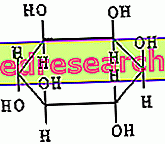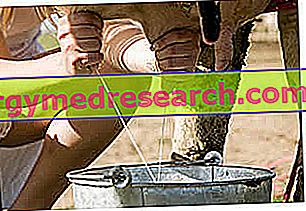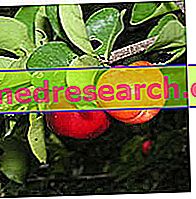Vitamin B7
Inositol is an essential substance for the body, which is able to produce it independently, alongside that of food. Currently it is considered a vitamino-like nutrient, since there are no certainties on the essentiality of the exogenous contribution (which is also ensured by the wide distribution of food). Despite this consideration, some authors report it with the acronym vitamin B7.
Inositol can be found in different isomeric forms, among which, for its first-rate biological role, myo-inositol stands out.

Inositol in foods and functions in the body
The most generous food sources are bran, whole grains, wheat germ, brewer's yeast, citrus fruits, meat in general and especially from the liver. The latter represents the key organ for its endogenous synthesis (an action, this, shared with the kidney). Inositol, which has a molecular formula identical to that of glucose, but with a different structure, is synthesized starting from glucose 6-phosphate (the first product of glycolysis); the excess is catabolized and eliminated in the kidneys. Similar to the B group vitamins, inositol is water soluble, which is why a possible integration is well tolerated and free of toxicity.
Once produced, inositol enters the cells, where it is largely transformed into phosphatidylinositol; the biological actions of this substance are multiple and in some ways still to be clarified. We know, for example, that it is active in plasma membranes, where it participates, as a precursor of second messengers, in the systems of transmission of signals that control cellular activity.
Inositol, which stimulates the production of lecithin (phosphatidylcholine) in the body, is advertised for its alleged ability to reduce cholesterol levels in the blood . The action of lecithin, in fact, is kindly comparable to that of a broom, which cleans the walls of the arteries from lipid deposits and conveys them to the liver (where they are partly eliminated through the bile). In the same way, inositol prevents this organ from accumulating too many lipids and "fat" (hepatopotective action against steatosis).
Inositol also helps the brain in states of anxiety, depression and strong psychic stress (it is considered a mild sedative).
Since mice deprived of their dietary intake lose their hair, inositol is advertised as an effective remedy in the treatment of alopecia (a pity, or fortunately, that man does not move on four legs and does not possess equally developed incisors! ).
Inositol supplements
The optimal intake dose has not yet been set; for this reason the recommended dosages vary from one up to 12 or more grams per day (at high doses it can have a laxative effect).
Recalling that inositol is widespread in food and is synthesized by the body, the usefulness of its integration is doubtful, above all because, for each field of action, there are more studied and proven alternatives (soy lecithin or red fermented rice, for example, to lower cholesterol, milk thistle due to the hepatoprotective effect and hypericum for the treatment of depressive states and anxiety).
Since some of these supplements can alter the activity of certain drugs and should not be used by some individuals, before buying and taking special supplements, including inositol, it is advisable to rely on the advice of experienced and qualified people.



